Australia is undoubtedly one of the best and most culturally diverse countries globally. Wildlife, nature, adventure and nightlife make it a highly sought-after destination for tourists and students alike. For those of you dreaming of experiencing your student life in Australia but are also worried about getting into your desired university, your search stops here. Universities in Australia with a high acceptance rate are for students who want to study and live in Australia without worrying about their chances of not getting in.
This guide will help you discover new universities, shed light on the courses they offer, and more.
Universities In Australia With A High Acceptance Rate: An Overview
| University Name | Acceptance Rate |
| La Trobe University | 100% |
| University of Newcastle | 87% |
| University of the Sunshine Coast | 82% |
| James Cook University | 79% |
| University of Adelaide | 75% |
| University of Tasmania | 75% |
| Charles Darwin University | 59% |
| University of Melbourne | 70% to 80% |
| Edith Cowan University | 63% to 75% |
| Charles Sturt University | 64% |
The table above was just an overview, with the acceptance rates provided directly. Let’s now understand what makes each of these universities suitable for you.
Top Universities with High Acceptance Rates
What makes Australian universities with high acceptance rates the ones you should opt for? This list contains all the top high acceptance rate universities in Australia you should consider when clicking the apply button. You may never know; you could get in.
La Trobe University
La Trobe University is a public research institution based in Melbourne, Victoria, Australia. Established in 1964, it is recognized as one of the top 1% of universities worldwide and is renowned for its high-quality education and research. La Trobe offers a hands-on learning approach with work-integrated programmes, providing students with practical skills and industry connections.
- Unique Features: Ranked among the top 1.3% of universities worldwide, La Trobe is known for its diverse programmes and impactful research. It provides a vibrant campus life with numerous extracurricular activities and cultural events.
- Acceptance Rate: 72%
- Average Fees: INR 20-24.4 Lakhs
- QS Rankings: 217
- Popular Courses: Business, Information, Technology, Engineering and Health Sciences.
University of Newcastle
Situated in Newcastle, this public institution is renowned for its comprehensive educational programmes, including certificates, diplomas, and degrees. The university extends its presence with Central Coast, Singapore, Newcastle City, and Sydney campuses.
- Unique Features: Newcastle offers diverse courses across various disciplines, with a strong focus on research and industry partnerships. Its main campus is located in the Callaghan suburb of Newcastle, providing students with a mix of urban and natural environments.
- Acceptance Rate: Approx 87%
- Average Fees: INR 19.73 to 26.55 Lakhs
- QS Rankings: 179
- Popular Courses: Architecture and Construction, Business and Management, Computing, Maths and Technology, Creative Industries and Communication, Education, Engineering, Health & Medicine and Humanities and Social Sciences.
University of the Sunshine Coast
Located in Queensland, the University of the Sunshine Coast is known for its nil application fees and high acceptance rate. It is also known for its strong focus on community and culture, alongside providing a world-class education. It operates across five campuses in South East Queensland, including its flagship campus at Sippy Downs. UniSC is recognized for its hands-on learning approach, practical skills development, and industry connections, which ensure that graduates are work-ready.
- Unique Features: USC is popular for accepting many rural and international students, making it a diverse and inclusive institution. The university’s location uniquely blends coastal lifestyle and academic excellence.
- Acceptance Rate: 66-82%
- Average Fees: 21.90 Lakhs to 43.79 Lakhs per annum
- QS Rankings: 1001-1200
- Popular Courses: Business, Computing and Education
James Cook University
James Cook University is a public research institution located in the tropical regions of Northern Queensland, Australia, with main campuses in Cairns and Townsville, and an international campus in Singapore. JCU is renowned for its strong research focus and commitment to addressing global challenges, particularly in tropical environments. The university is situated near the UNESCO World Heritage-listed Great Barrier Reef and the Wet Tropics rainforest, offering students unique opportunities for hands-on learning and research in these spectacular settings.
- Unique Features: JCU is renowned for its research in tropical regions and offers diverse courses catering to students interested in environmental studies and health sciences.
- Acceptance Rate: 79%. International students: 40%
- Average Fees: 20 – 24 Lakhs
- QS Rankings: 445
University of Adelaide
The University of Adelaide is a prestigious public research institution located in the heart of Adelaide, South Australia. Established in 1874, it is one of Australia’s oldest and most respected universities, ranking among the top 1% globally. As a member of the Group of Eight research-intensive universities, it is renowned for its academic excellence and innovative research in various fields.
- Unique Features: Adelaide is known for its strong research output and academic excellence. It consistently ranks among the top universities in Australia with a high acceptance rate globally and provides students with a rich cultural and academic environment.
- Acceptance Rate: 75%
- Average Fees: INR 28.23 to 33.92 Lakhs
- QS Rankings: 82
- Top Programmes: Health Sciences, Biological Sciences and Physical Sciences.
University of Tasmania
The University of Tasmania (UTAS) is Australia’s fourth oldest university, founded in 1890. Offering a unique blend of academic excellence and a stunning natural environment, it provides a vibrant campus life with world-class facilities across its Hobart and Launceston campuses.
- Unique Features: UTAS is recognised for its environmental studies, arts, and humanities programmes. The university’s location in Tasmania provides students with an exceptional natural environment and a close-knit community.
- Acceptance Rate: 75%
- Average Fees: 14.70 Lakhs to 51.98 Lakhs (ranges as per courses)
- QS Rankings: 293
- Top Programmes: Medicine, Law, Design, Maritime Studies
Charles Darwin University
Charles Darwin University (CDU) is a public university located in the Northern Territory, Australia, with its main campus in Casuarina, Darwin. Established in 2003, CDU is known for its unique position as a dual-sector university, offering both vocational education and higher education degrees.
- Unique Features: CDU is recognised for its research in tropical regions and offers students a unique cultural experience with its strong ties to Indigenous Australian communities.
- Acceptance Rate: 59%
- Average Fees: 7.8 Lakhs to 25.8 Lakhs
- QS Rankings: 621-630
- Top Programmes: Business, Information Technology, Health, Engineering, Humanities and Law.
University of Melbourne
The University of Melbourne is one of Australia’s most prestigious universities, consistently ranked among the top globally. It offers a wide range of undergraduate and postgraduate programmes across various disciplines. University of Melbourne falls under the top universities with high acceptance rate for international students in Australia.
- Unique Features: Melbourne is renowned for its academic excellence and research output. It provides students with a vibrant cultural and educational environment with numerous research centres and institutes.
- Acceptance Rate: 70%
- Average Fees: INR 19.38 to 28.19 Lakhs
- QS Rankings: 13
- Top Programmes: Law, Psychology, Arts and Humanities, Geography and Medicine
Edith Cowan University
Edith Cowan University (ECU) is a public research institution located in Western Australia, named after Edith Cowan, the first woman elected to an Australian parliament. Established in 1991, ECU is recognized for its high-quality teaching and research, consistently receiving 5-star ratings for teaching quality from graduates. ECU emphasizes practical learning, offering industry-relevant courses and opportunities for internships and international study tours.
- Unique Features: ECU is recognised for its strong industry connections and practical teaching methods.
- Acceptance Rate: 60-65%
- Average Fees: 8-47 Lakhs
- QS Rankings: 516
- Top Programmes: Engineering, Business, and Environmental Studies.
Charles Sturt University
Charles Sturt University is a public institution located in New South Wales, Australia, with a history dating back to 1895 and formally established as a university in 1989. It is named after Captain Charles Sturt, a British explorer. The university is renowned for its strong focus on graduate employability, with students securing jobs faster than any other public university in Australia.
- Unique Features: CSU is known for its online and distance learning options, which provide students with flexible study choices. It also emphasizes hands-on learning, industry partnerships, and community engagement, providing students with real-world experience and a network of industry contacts.
- Acceptance Rate: 64%
- Average Fees: INR 11.44–37 lakh
- QS Rankings: 851-900
- Top Programmes: Business, Information Technology and Medicine.
The road to understanding Australian universities with a high acceptance rate doesn’t end with just an overview. The benefits are what makes the deal even sweeter:
Benefits of Studying in Australian Universities with High Acceptance Rates
Readily getting accepted into the university of your choice is one benefit, yes. But when you choose Australia as your destination, the benefits keep rolling in, which are:
- Accessibility: High acceptance rates make securing admission easier, reducing the stress associated with competitive application processes.
- Diverse Programmes: These universities offer various courses catering to various academic interests and career goals.
- Cultural Diversity: Australian universities provide a culturally diverse environment, allowing students to interact with peers worldwide.
- Industry Connections: Many universities have strong industry partnerships, enhancing employability and providing internships and job placement opportunities.
- Affordable Living Costs: Compared to other countries, Australia offers relatively affordable living costs, especially outside major cities like Sydney and Melbourne.
Application Process
To apply to Australian universities with high acceptance rates, follow these steps:
- Meet Eligibility Criteria: Ensure you have completed secondary education for undergraduate programmes or hold a relevant bachelor’s degree for postgraduate studies. Some programmes may require additional tests like the GRE or GMAT.
- English Proficiency: Non-native English speakers must submit IELTS (typically 6.0-6.5) or TOEFL scores (60-100, depending on the programme).
- Gather Documents: Prepare academic transcripts, English test scores, a valid passport, a statement of purpose (SOP), and letters of recommendation (for postgraduates).
- Apply Early: Research and apply early to meet deadlines, typically in February and July for semesters one and two.
- Apply for a Visa: After receiving an offer, apply for a student visa with the required documents, such as proof of financial means and a Confirmation of Enrolment (COE).
Finding the right scholarship once you’ve applied to your desired university is extremely crucial. Read about your available options below:
Scholarships for International Students in Australian Universities
Australian universities offer a wide range of scholarships for international students, making education in Australia more accessible and affordable.
Here are some of the notable scholarships available:
| Scholarship Name | Description | Eligibility |
| Australia Awards Scholarships | Funded by the Australian government for students from eligible countries. | Students from Asia, Pacific, Middle East, and Africa. |
| Destination Australia Scholarships | Supports students studying in regional Australia. | Both domestic and international students in regional areas. |
| University of Sydney International Scholarships | For international students undertaking research programmes. | International students pursuing master’s or PhD research. |
| La Trobe University Scholarships | For international students in undergraduate or postgraduate courses. | International students enrolled at La Trobe. |
| Melbourne Research Scholarships | For international students studying research degrees. | International students pursuing research degrees at the University of Melbourne. |
| Swinburne International Excellence Scholarship | For international students in undergraduate or postgraduate coursework. | International students at Swinburne University. |
That being said, universities in Australia with a high acceptance rate don’t mean they lack in anything. They support a multicultural environment, welcoming students from every background to get the best education possible. However, even though these universities have a high acceptance rate, you should understand that a strong application and display of all the required documents will confirm your admission there.
Once you’re set to go, it’s time to find your perfect home in Australia! With UniAcco, securing student accommodation is hassle-free—helping you settle in smoothly and focus on making the most of your student journey.
FAQs
1. Which university in Australia has a 100% acceptance rate?
La Trobe University in Australia has a 100% acceptance rate, making it one of the most accessible institutions for international students. This open admission policy ensures that all eligible applicants are accepted, provided they meet the basic entry requirements.
2. Which Australian university is the easiest to get into?
Universities like the University of the Sunshine Coast and Charles Darwin University also have relatively high acceptance rates, though not as high as La Trobe’s, which has an acceptance rate of 100%.
3. Which university in Australia gives 100% scholarships?
The University of Technology Sydney (UTS) offers a 100% scholarship for international undergraduate students through the UTS Vice-Chancellor’s International Undergraduate Scholarship, covering full tuition fees for the course duration. Additionally, the Graduate Research Scholarships at the University of Melbourne provide complete tuition fee remission and living allowances for research students. However, these scholarships are competitive and based on academic excellence.
4. Which is the most demanding degree in Australia?
The most demanding degrees in Australia include Aerospace Engineering, Law, Medicine, and Architecture. These programmes are challenging due to their complex content, rigorous workload, and significant real-world applications.
5. Which university has the highest visa ratio in Australia?
Australia’s general student visa approval rate is between 85.1% and 86.7%. This indicates a high success rate for visa applications across various universities rather than a specific institution having the highest visa ratio.
We hope this article on Australian universities with a high acceptance rate will help you. To understand what more Australia have to offer, we recommend you check these out:

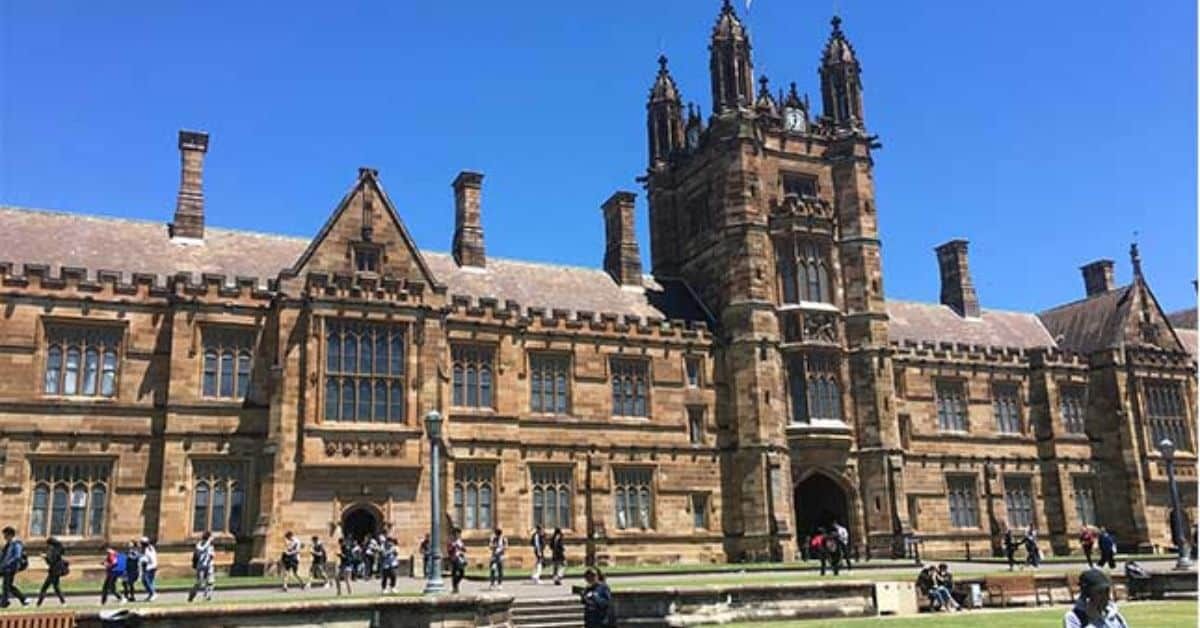







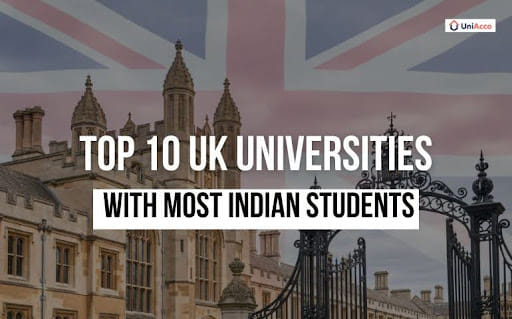

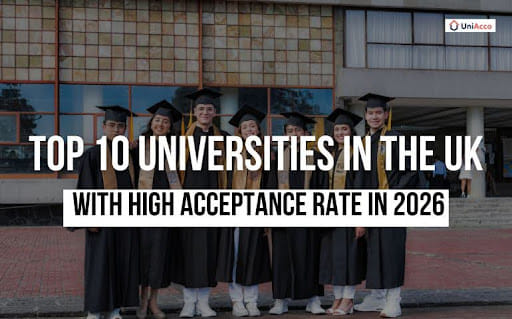
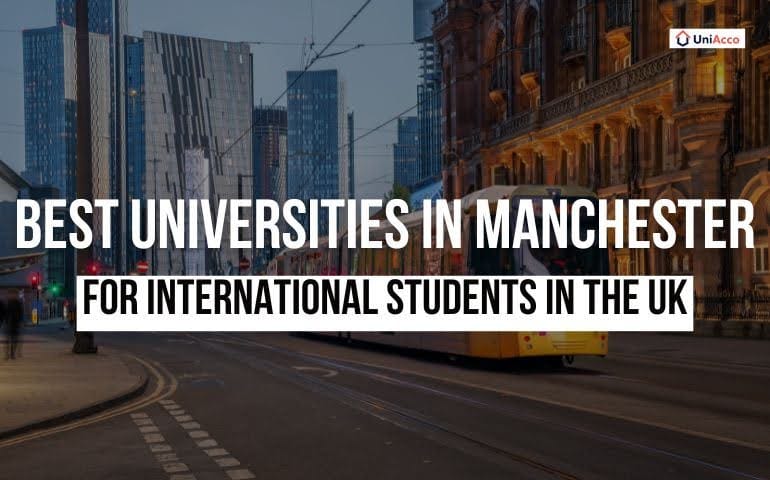

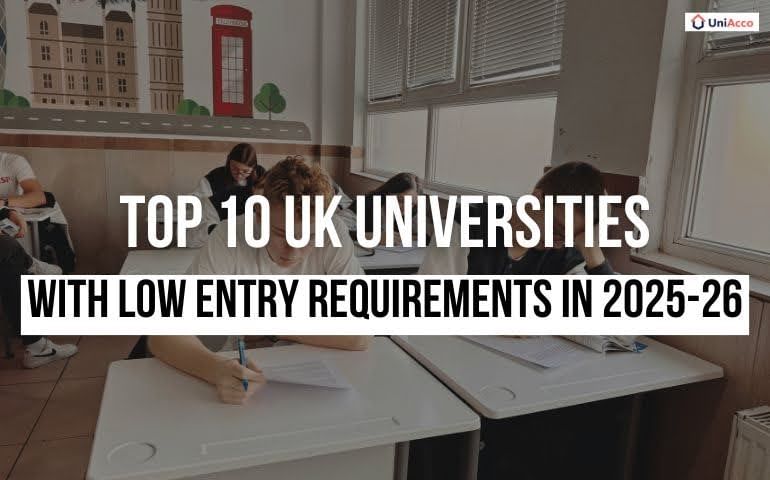
0 Comments